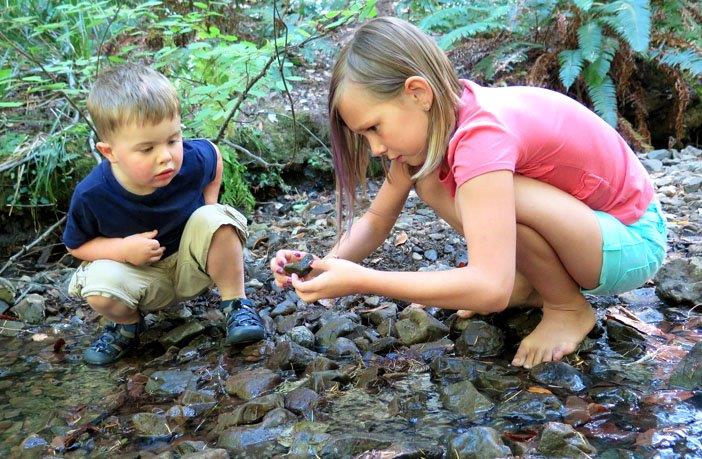Richard Louv mentioned in his book “Last Child in the Woods”, a few years ago that children had “nature deficit disorder” because they spent so little time in nature. They endured severe repercussions, including increased stress and anxiety, increased obesity and ADHD rates,
March 17,2016
Taking Art and Math Outside
“When we teach a child to draw, we teach him how to see.When we teach a child to play a musical instrument, we teach her how to listen.When we teach a child to dance, we teach him how to move through life with grace.When we nurture imagination, we create a better world, one child at […]
“Education is not the learning of facts, but the training of the mind to think.”- Educator, Horace Mann The great outdoors is your child’s “other” classroom. Studies are showing that young children need to interact with natural materials in the real world around them to develop higher or
Arranging Your “I LOVE LEARNING” Classroom The way you arrange your setting has a strong effect on children’s opportunities to fall in love with learning…and life. If you strictly control how children use space and spend time, you limit their chances to make decisions, and experiment with ma
YOU (Teacher)Create the EnvironmentYou are the important ingredient in teaching a child to love learning. In fact, you are the cornerstone of the classroom environment. No matter if you are in a tiny basement classroom or a huge sunny space, it is your interactions with children that turn any place
April 09,2014
“STEM in Preschool”
Advances in Science, Technology, Engineering and Math (Based on work from the Boston Children’s Museum) What is STEM- STEM is an acronym.It was used originally by the US government to describe fields of study that helped immigrants get work visas: science, technology, engineering, and math.Today,
February 17,2014
Science is the Art of Invention
“Equipped with her five senses, child explores the universe around her and we call that adventure Science.” ~Edwin Powell Hubble,1954 In both science and art the “good stuff’ is not necessarily the end product but the learning and fun of the journey. When we provide children with a d
How many times have you heard your child say, “Look what I did…Look what I found” with delightful amazement? The discovery of an interesting flower, rock, or button may seem inconsequential to adults but can become the basis for great opportunities for thinking, problem solving and fun.A walk
December 27,2013
Techniques for Using Art in Science Drawing, Charting and Graphing
There are a many different ways to help children translate what they have learned about a science concept into abstract and artistic representation. This is an important skill because it not only allows children to apply what they have learned (and to demonstrate their understanding) but it also inv
September 17,2013
Classroom Environment – Science Area
Children are curious. They like to observe the things around and like to explore them. All that makes every child unique in his/her comments about nature, people, him/herself you, as a parent or a teacher must have heard many a times like “Why do girls have to buy all pink stuff and the boys have

